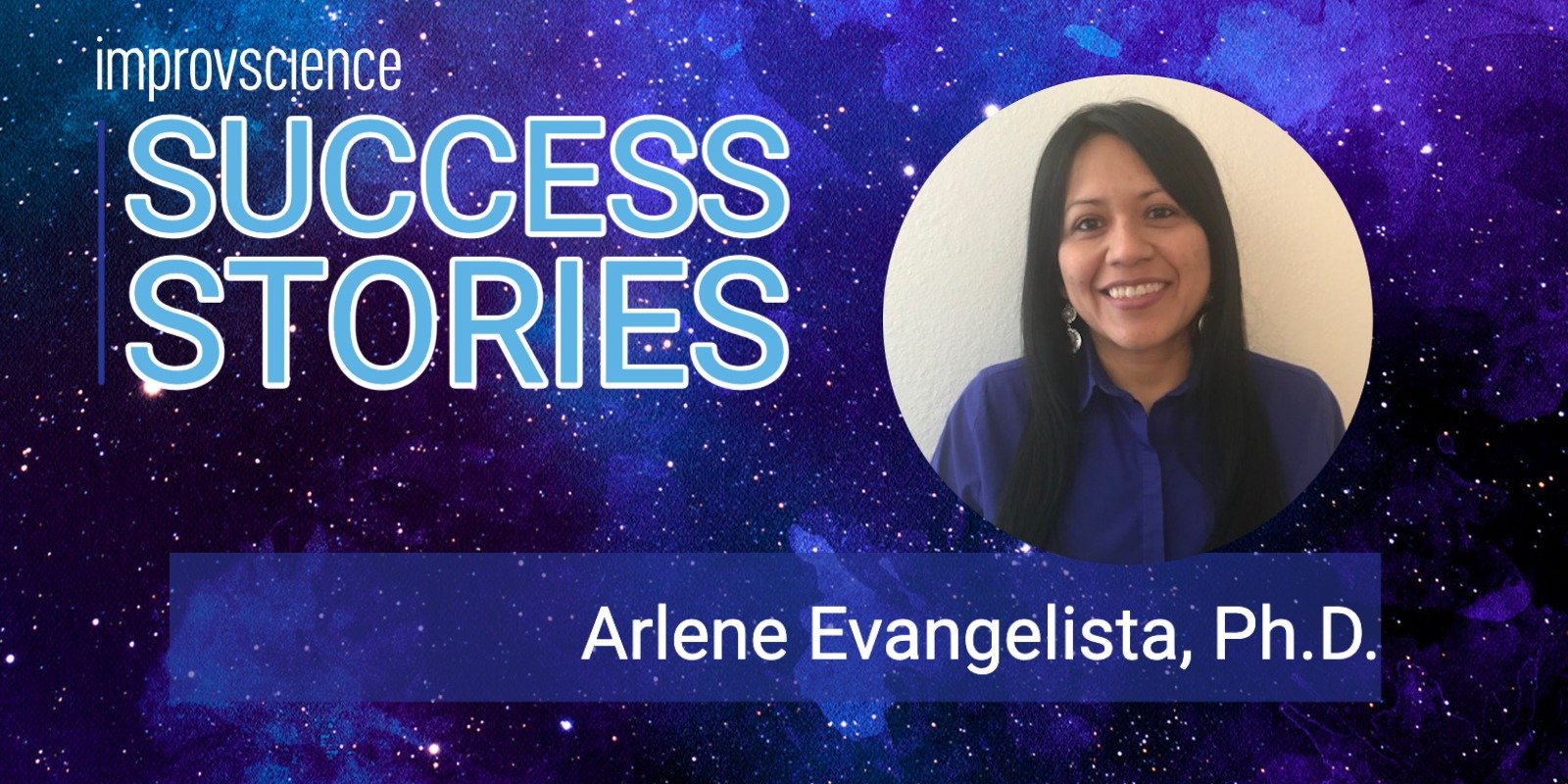Success Stories: Arlene Evangelista
Success Stories:
Arlene Evangelista
I met Dr. Holmes in an MTBI workshop in 2013, and also did some Professional Development workshops with her, focused on development as a scientist. For a few summers, Dr. Holmes conducted workshops with MTBI, helping students learn how to play and improvise in a collaborative setting. I saw first-hand how much the MTBI students enjoyed the play in the sessions and how the games built ensembles and created community within the group. Dr. Holmes invited MTBI students into conversations as a way of building community. She invited them to go deeper in exploring and finding the value of the different improv games, analogous to their roles as students in the program. In the end, students learn through improv that it is okay to make mistakes and to build conversations and ideas through whatever is offered. MTBI would then continue training these undergraduate students to become more comfortable with their learning community.
At the time, I was working on my PhD and Dr. Holmes became a member of my Dissertation Committee. I started working with Dr. Holmes and learned from her the principles of Social Therapy, which is based on the understanding that, as individuals, we grow and develop with others. In addition to Vygotsky’s work on the Zone of Proximal Development, I use the principles of Social Therapy as a lens for exploring learning communities, interviewing students who have gone through MTBI and already have their PhDs to discover what was helpful for them in moving forward in their professional and educational development.
I graduated with a PhD in Applied Mathematics for the life and Social Sciences in December 2015. I am now a mathematics instructor at Chandler Gilbert Community College in Arizona. What I learned from my training as a mathematician and Dr. Holmes is present in every classroom for me. No, I do not do improv games—but I do, in essence, say to my students, “Let’s play.” Rather than the traditional lectures in math classrooms, my approach is active learning and building communities. I invite them to play with concepts, to create conversations as a way of solving problems, and that it’s okay to make mistakes! I want them to own their own understanding and, even if I only have students for one semester, we do this together as a community of learners.
I am grateful to Dr. Holmes’ mentorship and friendship and value the work she does to help develop learning communities in STEM.

